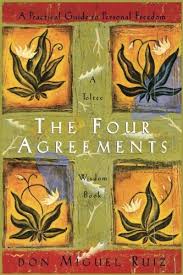Prayers
byPrayers are presented as a deep invitation to connect intimately with the divine, drawing attention to a heart-centered approach to experiencing love and communion with the Creator. The focus is on the breath, encouraging readers to become aware of this simple yet vital process. In doing so, the chapter highlights how something as fundamental as breathing can offer immense peace and joy. It serves as a reminder that the breath is a tool for mindfulness, grounding us in the present moment and offering a moment of reflection and gratitude for life itself. This approach shifts the focus from external distractions to the inner peace that is always available to us, if only we take the time to recognize it.
The Prayer for Freedom speaks directly to the need for liberation from the emotional constraints we often place upon ourselves and others. By calling on the Creator, or Love itself, the prayer seeks to open the heart to unconditional love for life, for oneself, and for all others. This prayer asks for freedom from self-judgment, which can poison our lives and cloud our interactions with others, fostering negativity and separation. It goes further to ask for a day filled with peace, love, and acceptance, a day in which we are not weighed down by the fears or limitations imposed by past wounds. The ultimate goal of the prayer is to express love freely without fear or hesitation, fully accepting who we are, without conditions. As the prayer concludes, gratitude for the freedom to be authentic and true to oneself emerges as a central theme, highlighting the immense joy and peace that comes from embracing our true nature.
The Prayer for Love introduces a vivid and symbolic vision where the narrator encounters an old man who exudes love and light in an almost magical way. The old man shares the story of receiving a sacred flame of love from his teacher, a transformative gift that purified his heart and soul, allowing him to radiate that love toward all living things. His ability to share this love unconditionally with nature, animals, and humanity highlights the profound ripple effect of a single act of love passed through generations. In this story, the old man eventually passes this flame of love onto the narrator, signifying the perpetuation of this pure, selfless love that transcends boundaries. This act symbolizes the interconnectedness of all things, reminding the narrator—and the reader—that love is not just an emotion, but a force that connects everything in the universe. The prayer that follows is an expression of gratitude for life itself, for love, and for the unity of all creation, calling for peace and love to remain in the heart as a new way of living, one rooted in harmony, compassion, and the collective good.
The chapter then shifts to offer more resources by don Miguel Ruiz, including additional works that build upon the wisdom imparted in this chapter. Books such as The Four Agreements, The Mastery of Love, and The Voice of Knowledge offer deeper insights into the principles of living a life centered around love, self-awareness, and inner freedom. These works explore themes of personal growth, relationships, and spiritual wisdom, offering readers the tools they need to transform their lives in profound ways. By incorporating these teachings, readers are given the opportunity to take what they’ve learned in the chapter and apply it practically, gaining further clarity on how to live authentically and embrace a life of peace, love, and freedom.
Through the prayers and the accompanying narrative, the chapter emphasizes the profound power of love and the importance of connecting with the divine essence that exists both within and around us. The central message is clear: embracing love, in all its forms, is the key to unlocking a life of peace and fulfillment. It stresses that unconditional love—love without judgment, love without fear—is not only transformative for the individual but for all of creation. The narrative invites readers to explore how this deeper connection to love can change their relationships, their environment, and ultimately their view of themselves and the world. By focusing on cultivating love within and embracing it as a guiding force in everyday life, we are called to live with greater compassion, understanding, and unity. This chapter offers a transformative perspective on love, showing that by embodying it, we open the door to healing, peace, and a life filled with greater purpose. Through this deeper connection with love, we can begin to see the world and ourselves in a new light, full of possibility and potential for growth.


